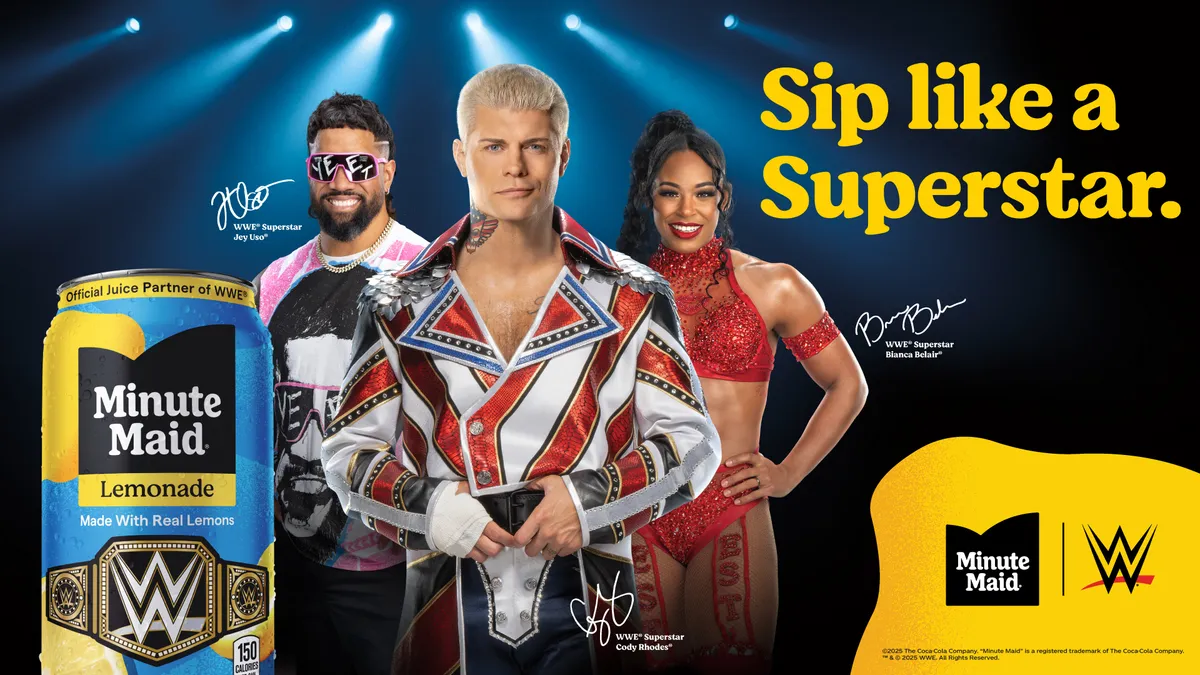Cost savings are typically cited as a big reason why brands decide to build an in-house agency, along with the opportunity to gain a level of control and flexibility that goes beyond traditional agency relationships. But recent headline-grabbing marketing flops like Pepsi's highlight some of the risks that come with this strategy.
Pepsi's recent Kendall Jenner-starring ad, which was made by an in-house team, is a clear example of how removing an outside perspective from the creative process can result in tunnel vision. The spot in question spurred a significant backlash for its no-turmoil-here depiction of people protesting that was labeled tone-deaf and out of touch. Ultimately, the company pulled the ad and must now try to repair its standing with some consumers.
Despite Pepsi's experience, the use of in-house agencies is likely to continue to grow as brands look for greater control over an ever-widening array of media options. With careful planning, marketers can avoid getting into trouble in many cases, but there are also times when outside expertise should be part of the strategy, according to industry experts.
"Building an in-house agency should be about something bigger than saving money," John Ounpuu, co-founder and partner at Modern Craft, told Marketing Dive. "It should be part — and not necessarily the first or biggest part — of a larger mission to create the marketing engine you need to take your brand forward in these uncertain times."
A state of flux
The relationship between brands and agencies has been in a state of flux for years, in part because the role of the traditional agency is not as clear as digital marketing continues to grow. Not too long ago, a record number of agencies were put under review by big brands in an industry event called "reviewageddon," among other epitaphs.
Agencies are also the focus of investigations alleging bad business practices while major marketers like P&G are increasingly bringing them to task for a lack of transparency.
Marketing Dive delved into how agencies are addressing some of the challenges they currently face in a feature last week, the first in a three-part series on the agency landscape. Next week, we'll take a look at the growing influence of consultancy agencies.
In the current environment of uncertainty, a number of brands are taking some marketing activities in-house.
"How do I keep pace with modern customers in the face of all of the rapid change and growing complexity?" is the question facing many marketers right now, according to Ounpuu. The idea of brands relying less on outside partners and instead being the architects of their own marketing engine is appealing as many try to find answers, he added.
Then there's the cost issue, which looms large right now because marketers are under significant pressure to prove the ROI on their efforts, something that complex and less-than-transparent agency fees make it difficult to accomplish.
"The cost benefits are obvious," Ounpuu said. "Speed, nimbleness and efficiency are a huge part of it, too."
Deeper instincts
There might be even better reasons to consider an in-house agency. An internal team can potentially develop deeper instincts about a brand's values and beliefs than an external vendor, according to Ounpuu. An in-house shop is also an opportunity to take more ownership over a brand's marketing overall.
"The most compelling benefits are about deeper immersion in the brand, the culture and the organization," Ounpuu said.
A case can also be made for in-house agencies as the demands increase on brands to create digital content, from sponsored content to mini-films.
In-house work should be limited to low-cost production work, said Michael Farmer, president of the advertising consultancy Farmer & Company and author of the book "Madison Avenue Manslaughter: An Inside View of Fee-Cutting Clients, Profit-Hungry Owners and Declining Ad Agencies."
Farmer cautioned brands to avoid taking on the greater role of the traditional agency in handling media advertising across channels such as TV and print, where agencies have a greater deal of experience and knowledge, he continued.
An echo chamber
On the con side, internal agencies can actually cost brands more than traditional agency relationships, Andy Kerns, content strategist at Digital Third Coast, wrote in a blog post.
While a benefit of an in-house agency could be cost savings, it would require an "incredible amount of work" to fill the time of those employees and the brand would need to see great ROI to justify the move, Kerns added. He pointed to a number of challenges including the expense of recreating the talent found at agencies, and that the process is time-consuming from a training and management perspective.
The Pepsi example reveals the ramifications when an in-house agency becomes an echo chamber with "aspirational groupspeak" and "exaggerated reverence for the brand and product" that gets directly exposed to the outside world without any filters or outside input, per Ounpuu.
"The already infamous Kendall Jenner Pepsi spot is, I think, a classic example of a worst-case scenario outcome from an internal creative agency,” Ounpuu said. "It’s been criticized as 'tone deaf,' but I’m sure it’s very in-line with the well-intentioned way people at Pepsi talk about their mission within their four walls."
Brands can fall into the trap of believing they will avoid Pepsi's missteps as, initially at least, a newly formed in-house team would bring thoughts and inspiration from other clients, Beth Haiken, Executive Vice President, Method Communications, told Marketing Dive.
"The longer they stay with you, the harder they’ll have to work to fight the insularity that comes with being in-house and to stay connected to the world outside, and the ideas and creativity going on there," Haiken said.
She added that an in-house agency makes sense for a steady workflow with quick turnarounds, but if there are big projects with breaks in between like an IPO, an M&A situation, a re-branding effort or a broad consumer launch even companies with in-house agencies should seek external help.
The verdict is still out
For companies debating creating an in-house agency or continuing with a traditional agency, Kerns insists creative control shouldn't really be a consideration because any good agency will understand how to be collaborative and of service. However, an in-house approach might make sense for small or young businesses where agency partners might be prohibitively expensive. Kerns sees a traditional agency as more important when a company has formidable competition or has crossed that first, stable threshold of revenue.
Looking ahead, some of the strengths of in-house agencies such as nimbleness may be met by traditional agencies in order to stay competitive in the marketplace, according to Kerns.
Agencies could also provide a benefit on the human resources front. The high turnover in millennial employees — with 91% of millennials expecting to be at their current job for less than three years, per Kern — is an area where agencies are better positioned to absorb the changes.
"Speed to market for new concepts and business models is blinding," Kerns said. "And novel new strategies and tactics don't remain secrets for very long. What every company should invest in, to ensure long-lasting success, is a team with a diverse set of creative aptitudes. Anything short of that will not fare well against competition."
Ounpuu sees the trend away from traditional agencies continuing for the foreseeable future, in part because of the contentious relationships between clients and agencies of late.
"We’re seeing more and more major brands turning to other partners, like the big consultancies for example, or smaller consultancies for help with this big picture stuff, with the task of modernizing the way marketing is practiced," Ounpuu said. "Help that goes deeper than creative ideas, addressing things like data management, technology integration, internal operations and connections between the marketing functions and the rest of the business."






















